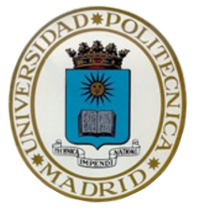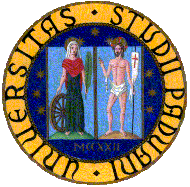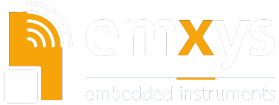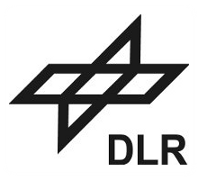UPM - Universidad Politécnica de Madrid (Coordinator)

UPM is the oldest and largest Spanish technical university, with more than 4.000 faculty members, around 38.000 undergraduate students and 6.000 postgraduates in 21 Schools of study covering most of engineering disciplines. UPM, as a top quality academic establishment, has a strong commitment to R&D and Innovation. It boasts over 200 Research Units and several Research Institutes and Technological Centres and contributes significantly to the international scientific community with a high number of journal papers, conference communications, and PhD theses.
The presence of UPM in the international R&D arena is ensured by its consistent participation in various EU schemes. As UPM participation in the FP6 is concerned, the University has taken part in 149 European R&D projects with more than 25 M€ of funding received from the European Commission. After the first two year of duration of the FP7 the UPM was recognized as the Spanish University with the highest number of projects approved.
UPM has a vast experience in Space Technologies. Thanks to its wide range of engineering schools UPM can address multidisciplinary research projects related to telecommunications, aerospace, real-time software, new materials, electronic systems more reliable or more efficient silicon-based cells. As a result, UPM has participated in 14 AEROSPACE projects in the FP6, in 3 SPACE projects in the on-going FP7 and in 20 projects for the European Space Agency in the last 7 years.
Visit official websiteUNIVERSITA DEGLI STUDI DI PADOVA - CISAS

Centro interdepartamentale di Studi e Attività Spaziali
UNIPD-CISAS is an Interdepartmental Centre of the University of Padova (UNIPD) dedicated to research in space science and engineering. Members of UPD-CISAS are departments of the University of Padova and the Astronomical Observatory of the University of Padova. A number of space instruments for space missions have been designed, developed at the level of engineering model, tested, and are currently flying (e.g., WAC on ROSETTA, HASI on CASSINI–Huygens, PFS on Mars Express). UPD-CISAS has extensive experience in research on tethered satellites, based on the participations of UPD scientists in the 90s in two NASA-ASI Shuttle-based tethered satellites missions TSS-1 and TSS-1R, among other related studies. UPD-CISAS operates one of the few hypervelocity particle accelerators in Europe that has been used for impact tests related to ESA missions (e.g., GOCE) and other space structures. UPD-CISAS is an independent organisation from the point of view of management and administration.
Visit official websiteONERA

ONERA is the French aerospace laboratory. It is a public, scientific and technical establishment, with about 2,000 employees, including 1,500 scientists, engineers and technicians, reporting to the French Ministry of Defence. Its Space Environment Department (DESP) is in charge of predicting and preventing the effects of space environment on space systems. ONERA/DESP is in particular a specialist of the interactions between spacecraft and plasma.
In BETs project the collection of electrons from the ionosphere is under study, experimentally in JONAS plasma chamber and numerically with SPIS code, both developed at ONERA/DESP.
Visit official websiteCOLORADO STATE UNIVERSITY

The Colorado State University Electric Propulsion & Plasma Engineering (CEPPE) Laboratory has been providing research, development, and testing since 1965 in Hollow Cathode technologies, among other topics. Notable recent projects include a fast Langmuir probe diagnostics system for investigation of advanced hollow cathodes and a miniaturized Faraday and ExB probe systems for use at L3-Com/ETI in characterizing the three NSTAR thrusters delivered to the DAWN spacecraft that was launched in Sept. 2007. Within the frame of this project, the CEPPE laboratory aims to develop the next generation hollow cathode plasma source for electrodynamic tether systems.
Visit official websiteEMXYS
emxys is a research company specialized in Advanced electronics for Space instruments, data acquisition and control systems providing high performance solutions for Space and non Space markets like scientific research, biomedical and defense.

The emxys team has accumulated a strong background in space related projects, both for ESA and first-class industry contractors, providing innovative, reliable, cost-effective research and engineering services in small platform satellites.
Thanks to the broad technology portfolio coming from past space activities and its network of first-class hi-tech partners, emxys is the perfect space segment engineering supplier, covering all the development phases: from the requirements analysis and specification to final implementation.
Visit official websiteDLR-Institute of Space Systems

DLR (Deutsches Zentrum für Luft- und Raumfahrt) is Germany's national research center for aeronautics and space. Its extensive research and development work in aeronautics, space, transportation and energy is integrated into national and international cooperative ventures. As Germany's Space Agency, the German federal government has given DLR responsibility for the forward planning and implementation of the German space programme as well as international representation of Germany's interests.
The Institute of Space Systems (DLR-Bremen) analyzes and evaluates complex systems of space flight with regard to technical, economical and socio-political aspects. Furthermore, it develops concepts for innovative space missions with high visibility on the national and international level. For scientific, commercial and safety-relevant demands the Institute develops and implements space based applications in cooperative projects with research partners and industry.
Visit official websiteTECNALIA

FUNDACIÓN TECNALIA RESEARCH & INNOVATION (TECNALIA) is the leading private and independent research and technology entity in Spain and the fifth largest in Europe. TECNALIA employs 1,437 people (164 PhDs) and its turnover is 121Me, it filed 53 patents, had 3800 clients and created 8 spin-offs in 2009. TECNALIA is very active in the Seventh Framework Programme (FP7) having already gained 150 projects, and coordinating 31 of them.
Innovation Systems, Sustainable Development (Energy, Construction and Environment), Industry and Transport (Casting and iron & steel, Transport and Industrial Systems), ICT (Software, Telecom, Infotech and Information Society), Aerospace and Health and Life Quality (Health and Life Quality) are the fields in which TECNALIA operates.
Visit official website- Coordinator:
 Universidad Politécnica de Madrid
Universidad Politécnica de Madrid- Participants:
 Universita degli Studi di Padova
Universita degli Studi di Padova ONERA - Toulouse
ONERA - Toulouse

An integrating initiative supported under the EC Framework Programme 7







